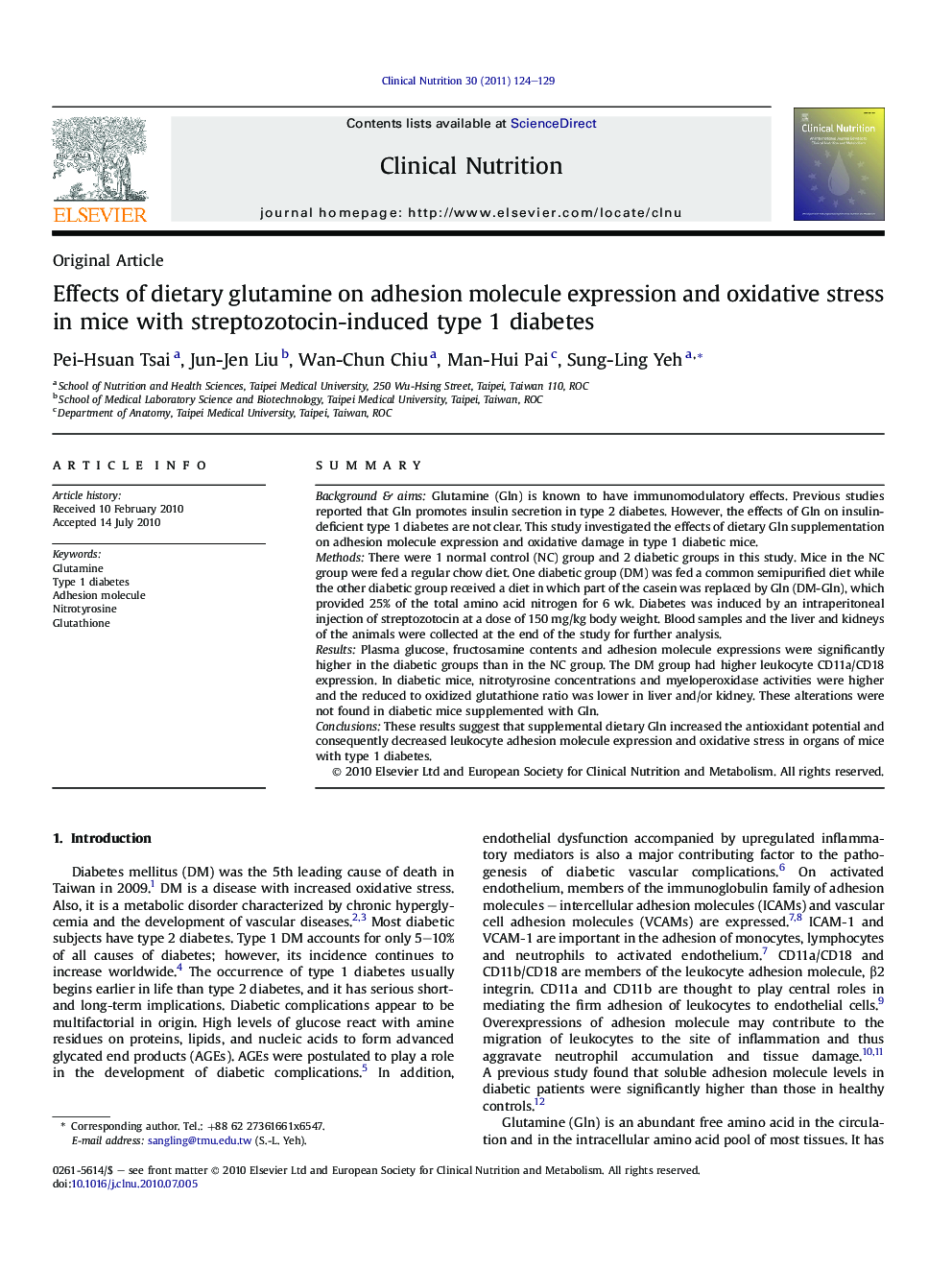| Article ID | Journal | Published Year | Pages | File Type |
|---|---|---|---|---|
| 2684195 | Clinical Nutrition | 2011 | 6 Pages |
SummaryBackground & aimsGlutamine (Gln) is known to have immunomodulatory effects. Previous studies reported that Gln promotes insulin secretion in type 2 diabetes. However, the effects of Gln on insulin-deficient type 1 diabetes are not clear. This study investigated the effects of dietary Gln supplementation on adhesion molecule expression and oxidative damage in type 1 diabetic mice.MethodsThere were 1 normal control (NC) group and 2 diabetic groups in this study. Mice in the NC group were fed a regular chow diet. One diabetic group (DM) was fed a common semipurified diet while the other diabetic group received a diet in which part of the casein was replaced by Gln (DM-Gln), which provided 25% of the total amino acid nitrogen for 6 wk. Diabetes was induced by an intraperitoneal injection of streptozotocin at a dose of 150 mg/kg body weight. Blood samples and the liver and kidneys of the animals were collected at the end of the study for further analysis.ResultsPlasma glucose, fructosamine contents and adhesion molecule expressions were significantly higher in the diabetic groups than in the NC group. The DM group had higher leukocyte CD11a/CD18 expression. In diabetic mice, nitrotyrosine concentrations and myeloperoxidase activities were higher and the reduced to oxidized glutathione ratio was lower in liver and/or kidney. These alterations were not found in diabetic mice supplemented with Gln.ConclusionsThese results suggest that supplemental dietary Gln increased the antioxidant potential and consequently decreased leukocyte adhesion molecule expression and oxidative stress in organs of mice with type 1 diabetes.
